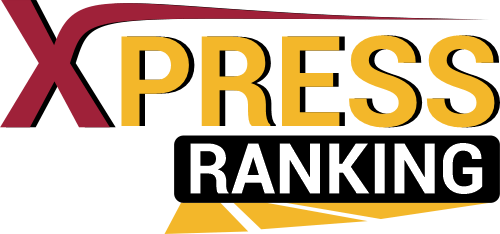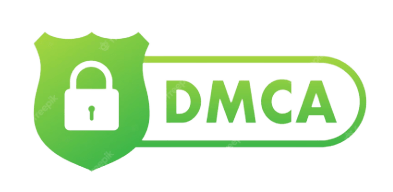Website visibility is closely related to ranking. The higher you appear on a Search Engine Results Page (SERP), the more people see and click on your site. Additionally, driving quality traffic to your website can be cost-effective, helping you reach more users without overspending.
Businesses, from startups to prominent professionals who search for SEO services in the USA, need reliable, solution-driven strategies and approaches for organic ranking. However, how can businesses rank organically? This question has good weight as it is essential to let your page grow on comprehensive search engine platforms.
As part of our solution, we bring you this blog as a complete guide, including the best 20 search engine Optimization(SEO) tips to grow organic rankings and website traffic. Keep on reading!
Start with Primary and Secondary Keywords
Starting with primary and secondary keywords is like laying the cornerstone of a grand structure. By prioritizing such essential elements, you set the stage for a robust strategy that can scale your content and amplify your reach.
Using an appropriate set of keywords effectively is a wise strategy for developing compelling content that brings more audience to your website. Keywords are segregated into primary and secondary keywords. Let’s explore what these are and how you can select them.
Primary keywords are the leading search terms being targeted on a specific page; secondary keywords are close variations related to subtopics. Both are important to contributing to your overall content and SEO strategy.
How do you find such keywords? A better alternative is to use a keyword magic tool to find impactful primary and secondary keywords.
To start your search, enter specific keywords you should include in your content, like Keyword Optimization, into the tool. Then, select your location and hit “search.”
On the other hand, for a secondary keyword, you have to narrow down your search and research keywords that are closely related to your primary keyword.
To find the same, you can use your primary keyword in the tool and hit “Search” again. Secondary keywords align with your primary keyword, and so do search engine results.
If you want to add some variation to your list of keywords, go for the “Questions” button. You will see comprehensive question-based keywords that contain your primary keyword.
While conducting your search, you need to make sure that each piece of content targets one primary keyword and multiple secondary keywords.
Note* For further assistance with keyword optimization, ask our experts for some great insights.
Upgrade Your Website’s Title Tags and Meta Descriptions
A website’s title tags and meta descriptions are the source of (Through Rate)CTR, which indicates to search engines and targeted audiences what the page is all about! This is where updating them becomes paramount to showing up on your page in search results and persuading users to click and visit your site.
Here’s a tip: Use catchy, keyword-rich title tags to boost your page traffic and attract users. Additionally, include meta descriptions to clearly and effectively communicate the content you offer.
Make Quality Rich Content for Your Audience
In your journey in digital marketing, you may have heard of the term “Content is King!”
Quality-rich content is much more impactful than content without any quality and addresses your audience’s queries. But what does high-quality content exactly mean?
Let’s get into the details!
Nowadays, people who are on the internet like to read content that includes suggestions and quality information rather than adding words to writeups. Your content should consist of solutions to your audience’s queries, and this will make them engage with you, which in turn will satisfy their needs.
High-quality content includes well-researched information that is well-written and well-formatted after addressing and studying targeted audience queries and interests. There are many more on the list.
On the other hand, what is original content?
As the name suggests, it includes unique information and insights and makes your audience read your writeup and land on your website.
You need to ensure that your content is not copied, spun, or scraped from other websites. Instead, it should be written after thorough research and add something new and exciting to the web.
For the same, you can ask our experts at Xpress Ranking for assistance, including brilliant minds who create compelling, informational, well-researched, high-quality content.
Make Your Website Mobile Friendly
A website is the first impression of your business, which shows your audience what you provide! The majority of internet users are on the internet nowadays and use mobiles to scroll the web; this raises the demand for mobile-friendly websites. A website that fits on comprehensive devices in a clearly visible way, providing a better experience to users.
Well Optimized Google My Business Listing
Most of you have heard about GMB(Google My Business), a platform for registering your business. Registering your business is necessary to boost your ranking, build credibility and trust, and, more often, reach out to users globally. Claiming it results in the verification of your business place, which is updated. Then, it helps make it accessible for users, which increases traffic.
Improvise Your Content for Readers and Search Engines, Too!
Good or bad content can make or break your SEO efforts! Do you know why? Formatting affects two significant factors: readability and user experience. Readability makes it easier for your audience to consume the content, while user experience shows how people interact with it.
Sounds interesting?
Both factors show how long users stay on your page, engage with your content, and even share it among their networks. So, the more you upgrade your content for readability and user experience, the better it is likely for search engines.
Use Keywords that Trigger the Feature Snippet
You may have come across featured snippets when you scroll the web; the same appear at the top of Google’s search results with a short, quick answer relevant to the searcher’s query.
Here are ways to secure your snippets:
- Structure your content with well-organized headers.
- You can make it in a question form, including questions as headers, and answer the same.
- Arrange your paragraphs with lists and tables where needed.
Try to Use Short, Descriptive URLs
A website’s Uniform Resource Locator(URL) is the address of your webpage that appears in a browser. But did you know that it can impact your website’s ranking and traffic?
If you are not aware of this, here are some best practices you should follow.
- Use hyphens (-) to separate words instead of underscores (_), spaces, or other characters.
- Stick to lowercase letters rather than uppercase ones.
- Avoid unnecessary words like articles, conjunctions, prepositions, or stop words.
- Make sure to include your target keyword, but use it sparingly.
It’s Good to Have Quality Backlinks from High-Authoritative Websites
Backlinks in SEO have many benefits for improving your ranking. Do you know why? According to Search engines, the quality of the links matters if they are from authoritative websites.
So, the more backlinks your website has, the higher it can rank for search terms. The same is true for links from other websites with good “Domain authority” that point to yours, which is a crucial Google ranking factor.
Are all backlinks essential?
While some carry more importance and authority than others, depending on the source. Here is an example for your better understanding:
A backlink from a high-authority website like Forbes will boost your SEO far more than a link from a random blog or forum. Even so, quality backlinks from reputable sources can significantly enhance your website’s credibility and ranking.
The Need to Improve Core Web Vitals for A Good User Experience
Core Web Vitals are metrics known for measuring the required speed, responsiveness, and stability of your web pages.
Here are some metrics to consider:
- Largest Contentful Paint (LCP): How long it takes for your page’s primary content to load
- First Input Delay (FID): How long it takes until your page can respond to the user’s first interaction (such as a click)
- Cumulative Layout Shift (CLS): How much users experience shifts in layout.
According to Google, the same is a part of the page experience that affects rankings.
What does it mean?
If your pages have low Core Web Vitals scores, you might lose traffic to competitors with better user experiences.
To check your site’s Core Web Vitals, use the Core Web Vitals report in Google Search Console or the “Core Web Vitals” report in Site Audit.
The Bottom Line
Here we come to the end of this blog. Until now, we have discussed the top 10 SEO practical tips that will help you rank organically and boost your website traffic. The above pointers are not just theoretical but practical and really helpful for any business, from startups to big professional giants.
Furthermore, for further consultation about on-page and off-page SEO Services, ask our industry experts, who will assist you with all their knowledge, skills, and expertise.
We will see you again with a new topic. Till then, keep exploring and keep growing!



